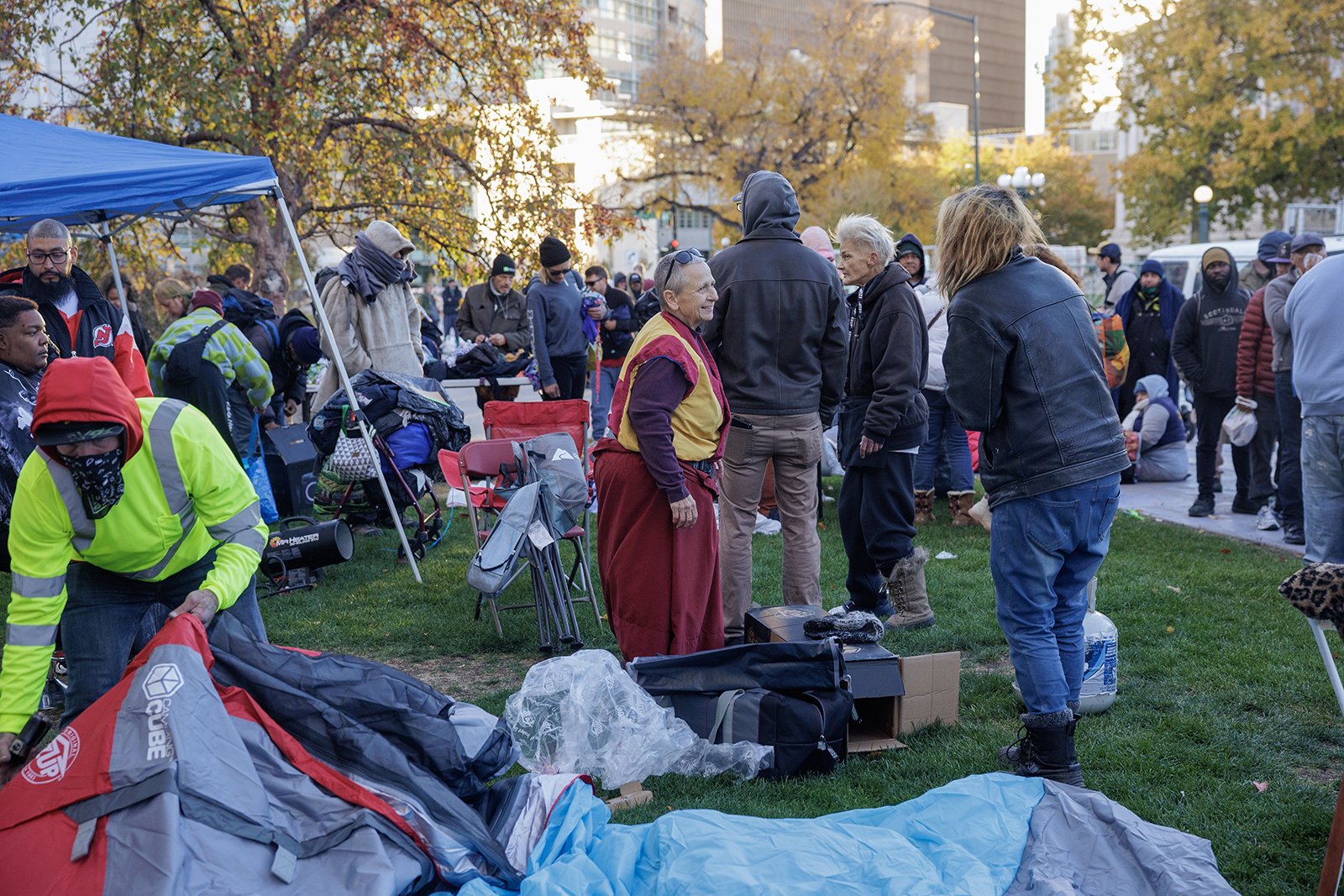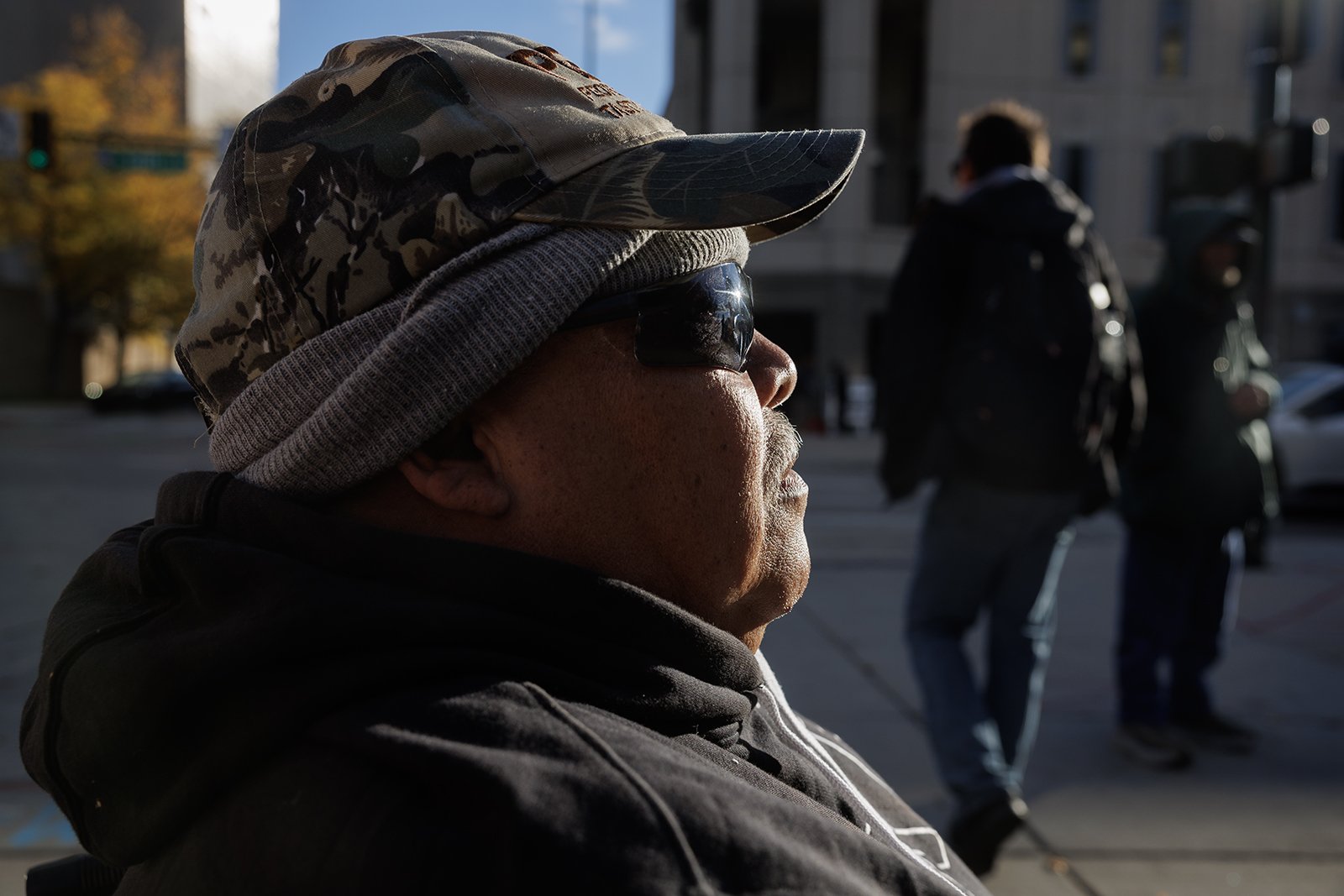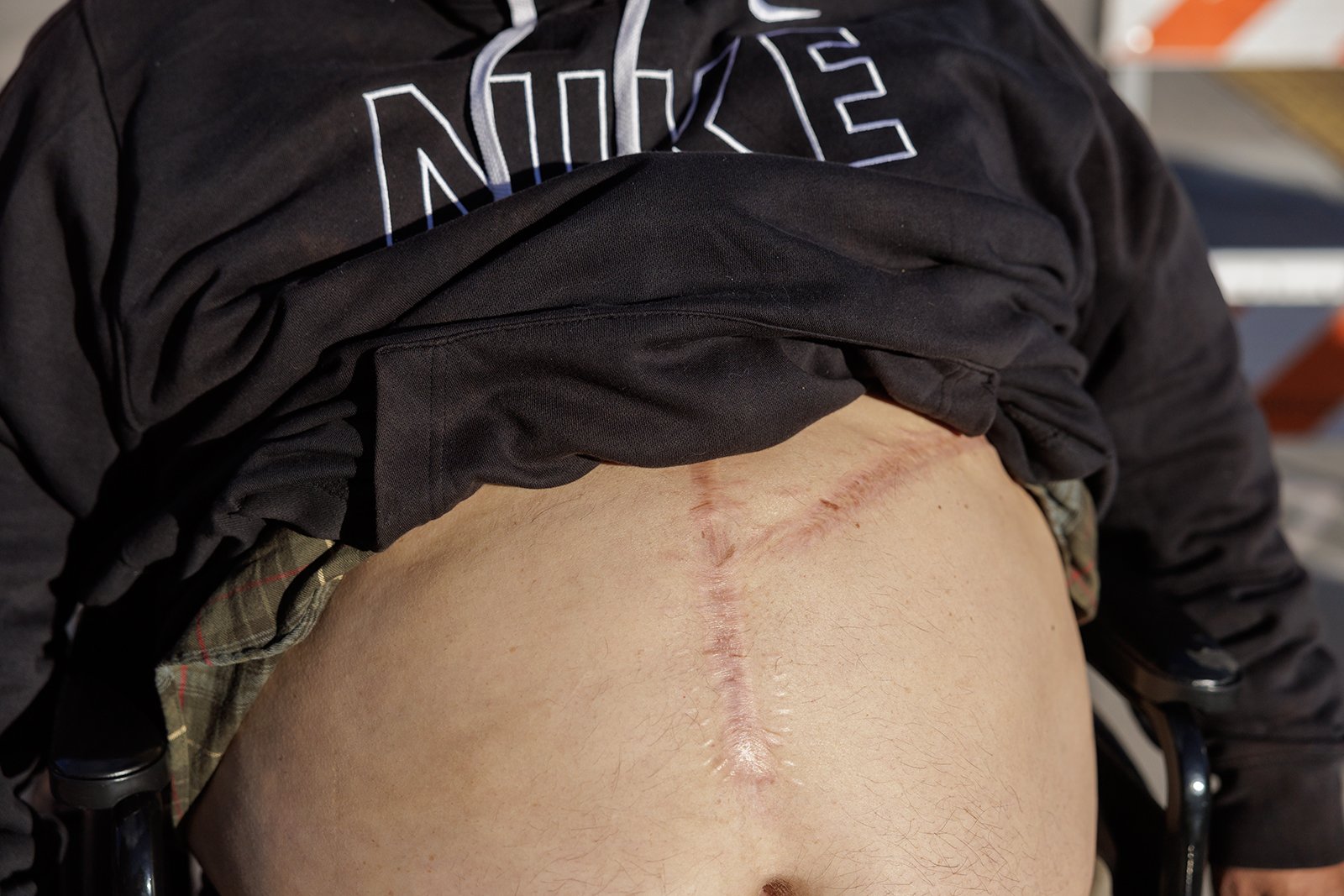Mutual Aid Monday Marks Four Years of Building Community and Trust for Denver’s Unhoused
Mutual Aid Monday serves several hundred individuals each week.
Story and Photos by Giles Clasen
Mutual Aid Monday marked its fourth anniversary on November 4, celebrating grassroots support for Denver’s unhoused community.
Mutual Aid Monday grew out of a call for action that intensified after the 2020 Black Lives Matter protests. A few individuals involved in the protests, including Keslang Virya, focused their attention on providing community and care to Denver's homeless community.
"We started as a protest to show the City Council, and the maYor, and everybody who pays attention that what's happening in Denver is not OK and that there are a lot of hungry, cold people who need help," Virya said.
The idea was to provide food, clothing, and other supplies every Monday on the lawn of Denver's City and County Building before each week's city council meeting. The group has set up tables and served hot meals there every week since its inception not stopping for holidays or inclement weather.
The group wants to bring attention to individuals experiencing homelessness. The hope is that the Denver community will show greater empathy and kindness to the unhoused while providing critical resources
The group's approach prioritizes dignity and acceptance, serving anyone in need, including Denver's Newcomers. Many of the current volunteers have experienced homelessness. After securing housing, they returned to Mutual Aid Mondays to serve.
The organization follows the Mutual Aid model of volunteers bringing what they have to provide for those who have less.
The structure lacks the formal processes that most homeless service providers require. There are no forms to fill out and no required check-in. Anyone in need can line up and receive food, tents, sleeping bags, heaters, and personal care items.
“Mutual aid is creating a world that I want to live in. It’s not about giving; it’s creating community and respect,” Virya said. “People don’t have to jump through hoops. We just take folks as they are and, if we have it, we give it to them.”










In its first week, Mutual Aid Monday served about 50 people, but the weekly meal now draws several hundred people most weeks, with attendees lining up an hour before volunteers start setting up.
"Over the years, it’s created a community of people who trust us," Virya said. "They don’t trust the city, they don’t trust cops, but they trust us."
Virya cites the group's relational approach as the foundation of that trust.
Joseph Monroe has been attending the Monday meals for several years. Monroe became homeless after taking on significant debt to pay for his mother's cancer medication. When she died he had to declare bankruptcy and lost his housing soon after.
"I went from having thousands in my savings to just pennies and no credit. It left me no other options than to be homeless," Monroe said.
He traveled to different cities looking for work and couch surfing before landing in Denver.
"I got to know Ms. Virya over time. Ever since becoming homeless, she has been a reminder that people like my mom still exist in this world," Monroe said. "She's a reminder that people care and that there are still good people in this world who genuinely care in this world. She does this every Monday without fail. I know every Monday I have a community to join."
For many like Joseph Monroe, the Monday meals are more than just food—they’re a lifeline and a place of stability in an otherwise unpredictable world. For years, Monroe’s journey has been defined by hardship and loss, but he’s found a sense of belonging and community here every week.
Jaquin Roscon is another regular at the Monday evening gatherings. He has been attending the dinner every Monday for the past two years. He lives at the Salvation Army shelter and uses his wheelchair to navigate Denver and secure supplies.
Roscon crossed into the United States 17 years ago to work with his father who was already a United States citizen. Roscon worked in construction for years sending money back to his family in Chihuahua Mexico.
He became homeless after a circular saw sliced through his abdomen while working in construction. Roscon found he had no protections as an undocumented migrant and received no compensation for the life-altering injury.
"The shelter at the Salvation Army is very good. I get food and a bed. It is clean. The only problem is I can't get everything I need and Mutual Aid Monday gives me what I need. I couldn't survive without them."
Roscon said homelessness can be lonely and Mondays are a time to connect with friends while eating a warm meal. He is not alone in finding support and friendship at Mutual Aid Monday


Rhonda echoed Roscon's statement. She has been attending Mutual Aid Monday for a year and said the group helped her when she first became homeless by providing her with winter gear and clothes.
"I was ill-prepared for Colorado. It is more expensive here than I thought it would be," Rhonda said. "I haven't been able to find work. I've been on the streets and it just isn't possible to get by on your own."
Rhonda said she needs the food and clothes provided but the community is the real draw.
"It is a place to connect with people and friends you haven't seen for a while," Rhonda said. "It is socialization. It is hard to have and keep friends out here. If you're lucky you can find a few real friends. [Mutual Aid Monday] helps you find and keep friends."

